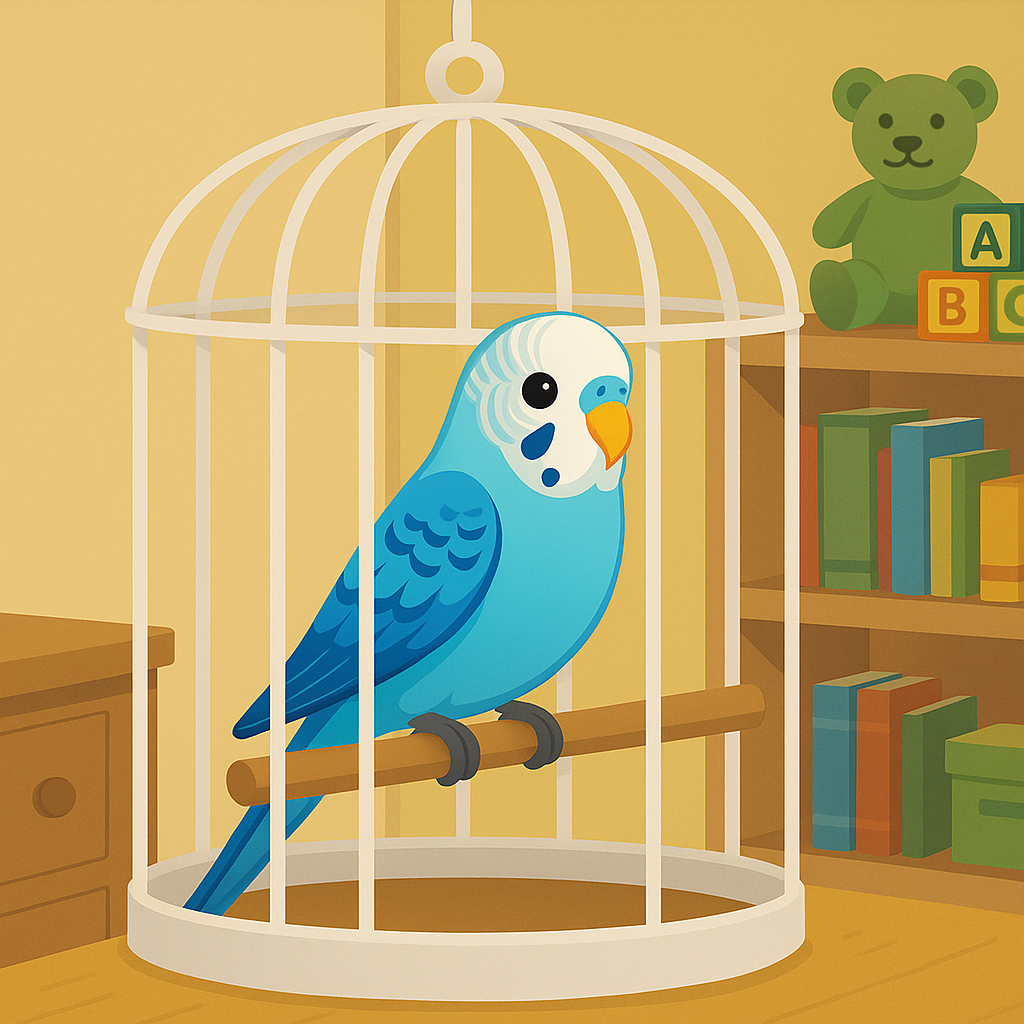
When I was a child, my mom gave me an Australian budgie. At home, we called her “la catita.” Her feathers were soft, blue-toned, and she fit entirely in the palm of my hand—like a secret. She lived in a little white cage in my room, where her tiny eyes greeted me every morning.
That morning, I left for school as usual, never imagining that something was about to break forever. When I returned, I found my younger sister and my cousin—both about five and a half—running toward me with something in their hands, as if they had discovered a treasure. Then, breathlessly, they said:
“La catita isn’t moving.”
They held her clumsily; her little body was still warm. At their feet, on the floor, I saw a large bronze anchor-shaped keychain. I never knew why they had it. I didn’t want to ask.
I stood still. I didn’t cry. I didn’t speak. I just looked at her, with the vain hope that my gaze might return something of what she had lost.
When I asked what had happened, they told me in trembling voices that they had thrown her several times, trying to see her fly. But her wing feathers had been clipped. She couldn’t. And in one of those throws, she hit the wall. And died.
The little cage remained empty, a tiny white coffin in my room.
And I understood, without tears, that sometimes the smallest secrets hold the deepest pain.
